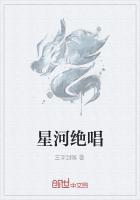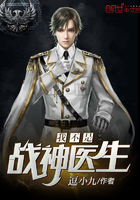A THOROUGHBRED RUNS AWAY.
It was midday six weeks later, and Pauline and Dumont were landing at Liverpool, when Scarborough read in the college-news column of the Battle Field Banner that she had "married the only son of Henry Dumont, of Saint Christopher, one of the richest men in our state, and has departed for an extended foreign tour."Olivia--and Pierson naturally--had known, but neither had had the courage to tell him.
Scarborough was in Pierson's room.He lowered the paper from in front of his face after a few minutes.
"I see Pauline has married and gone abroad," he said.
"Yes, so I heard from Olivia," replied Pierson, avoiding Scarborough's eyes.
"Why didn't you tell me?" continued Scarborough, tranquil so far as Pierson could judge."I'd have liked to send her a note."Pierson was silent.
"I thought it would cut him horribly," he was thinking."And he's taking it as if he had only a friendly interest."Scarborough's face was again behind the newspaper.When he had finished it he sauntered toward the door.He paused there to glance idly at the titles of the top row in the book-case.
Pierson was watching him."No--it's all right," he concluded.
Scarborough was too straight and calm just to have received such a blow as that news would have been had HE cared for Pauline.
Pierson liked his look better than ever before--the tall, powerful figure; the fair hair growing above his wide and lofty brow, with the one defiant lock; and in his aquiline nose and blue-gray eyes and almost perfect mouth and chin the stamp of one who would move forward irresistibly, moving others to his will.
"How old are you, Scarborough?" he asked.
"Twenty-three-nearly twenty-four.I ought to be ashamed to be only a freshman, oughtn't I?" He shrugged his shoulders."I'm tired of it all." And he strolled out.
He avoided Pierson and Olivia and all his friends for several days, went much into the woods alone, took long walks at night.
Olivia would have it that he had been hard hit, and almost convinced Pierson.
"He's the sort of person that suffers the most," she said.
"I've a brother like him--won't have sympathy, keeps a wound covered up so that it can't heal.""But what shall I do for him?" asked Pierson.
"Don't do anything--he'd hate you if you did."After a week or ten days he called on Pierson and, seating himself at the table, began to shuffle a pack of cards.He looked tired.
"I never saw cards until I was fifteen," he said.
"At home they thought them one of the devil's worst devices--we had a real devil in our house.""So did we," said Pierson.
"But not a rip-snorter like ours--they don't have him in cities, or even in towns, any more.I've seen ours lots of times after the lights were out--saw him long after I'd convinced myself in daylight that he didn't exist.But I never saw him so close as the night of the day I learned to play casino.""Did you learn in the stable?" asked Pierson.
"That's where I learned, and mother slipped up behind me--Ididn't know what was coming till I saw the look in the other boy's face.Then--" Pierson left the rest to imagination.
"I learned in the hay-loft--my sister and my cousin Ed and I.
One of the farm-hands taught us.The cards were so stained we could hardly see the faces.That made them look the more devilish.And a thunder-storm came up and the lightning struck a tree a few rods from the barn.""Horrible!" exclaimed Pierson."I'll bet you fell to praying.""Not I.I'd just finished Tom Paine's Age of Reason--a preacher's son down the pike stole it from a locked closet in his father's library and loaned it to me.But I'll admit the thunderbolt staggered me.I said to them--pretty shakily, Iguess: `Come on, let's begin again.' But the farm-hand said:
`I reckon I'll get on the safe side,' and began to pray--how he roared! And I laughed--how wicked and reckless and brave that laugh did sound to me.'Bella and Ed didn't know which to be more afraid of--my ridicule or the lightning.They compromised--they didn't pray and they didn't play.""And so you've never touched a card since.""We played again the next afternoon--let's have a game of poker.
I'm bored to death today."
This was Scarborough's first move toward the fast set of which Pierson was leader.It was a small fast set--there were not many spoiled sons at Battle Field.But its pace was rapid; for every member of it had a constitution that was a huge reservoir of animal spirits and western energy.They "cribbed" their way through recitations and examinations--as the faculty did not put the students on honor but watched them, they reasoned that cribbing was not dishonorable provided one did barely enough of it to pull him through.They drank a great deal--usually whisky, which they disliked but poured down raw, because it was the "manly" drink and to take it undiluted was the "manly" way.
They made brief excursions to Indianapolis and Chicago for the sort of carousals that appeal to the strong appetites and undiscriminating tastes of robust and curious youth.
Scarborough at once began to reap the reward of his advantages--a naturally bold spirit, an unnaturally reckless mood.In two weeks he won three hundred dollars, half of it from Pierson.He went to Chicago and in three nights' play increased this to twenty-nine hundred.The noise of the unprecedented achievement echoed through the college.In its constellation of bad examples a new star had blazed out, a star of the first magnitude.















